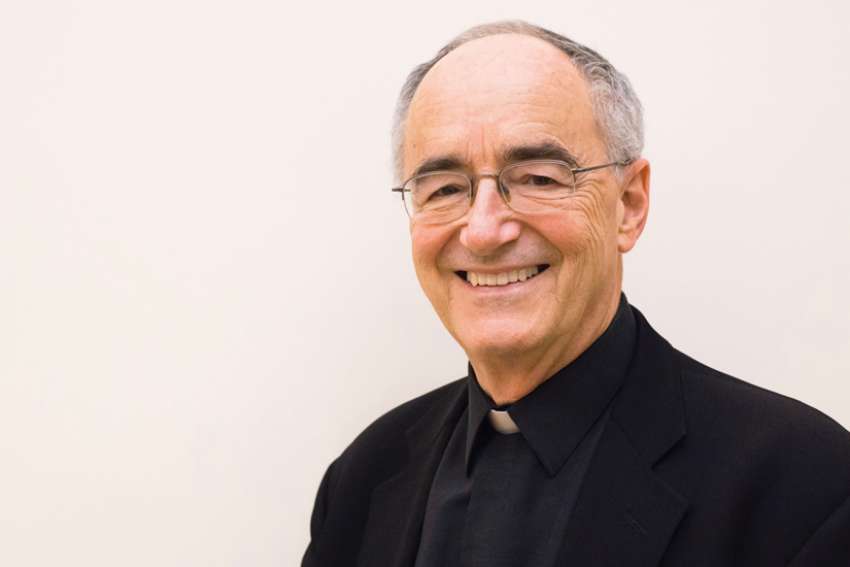“We will not exit from it (COVID-19) better if we fall back into the temptation of individualism, whether personal or collective, often expressed in the form of political nationalisms and narrow economic interests,” the Canadian cardinal told students and faculty at the Jesuit university.
Quoting extensively from Pope Francis’ recent encyclical Fratelli Tutti and the Pope’s Wednesday audiences, Czerny lays out a moral framework for a COVID recovery.
“The prescription offered by Pope Francis unleashes the ‘antibodies of justice, charity and solidarity,’ ” Czerny said.
The response to the great unknowns of the post-pandemic world falls on our collective duties in political, economic, social and cultural life.
“We must reject the ruinous ideologies of indifference, invisibility and individualism,” Czerny said. “We must not foster divisions. We must not be hypocrites. We must reject an economic model based on greed, zeal for profit and instant gratification. We must put people first, rejecting purely technocratic solutions.”
Czerny emphasized the Pope’s teaching against narrow nationalism and go-it-alone economics.
“Individual states acting alone cannot implement adequate solutions,” he said.
As a Jesuit, Czerny turned to the words of St. Ignatius of Loyola. Now is the time “to give and not to count the cost,” he said.
“What Pope Francis teaches, especially in Fratelli Tutti, gives us a moral road map to emerge strong, less fearful and more human.”
Czerny emphasized the ways in which COVID-19 has exposed divisions, flaws and widespread suffering that had been growing long before the pandemic.
“The pandemic appeared in a particular context,” he said. “One of widespread injustice, inequality and assaults on our common home.”
Though there’s nothing new to Catholic social teaching in Czerny’s speech, it sets out a clearly global perspective that should be heeded by the Church in Canada, said University of Sudbury systematic theologian Christopher Duncanson-Hales.
“For the Canadian Church it’s a warning against falling back into individualism, either as individuals or as nations,” he said.
In presenting Pope Francis’ teaching, Czerny forces important questions to the surface, said Regina archdiocesan theologian Brett Salkeld.
“We could start with sin and say, ‘What failed? Where does the system fail? What’s wrong with our politics, with our social cohesion?’ ” Salkeld said.
By paying attention to who suffers during COVID lockdowns we can see more clearly the moral shape of the world, said Salkeld.
“Here’s a chance to see clearly,” he said. “And we can take the opportunity to see clearly because this tragedy shows us things that are hard to see, or that we don’t like to see. But now it’s right in front of our face.”


